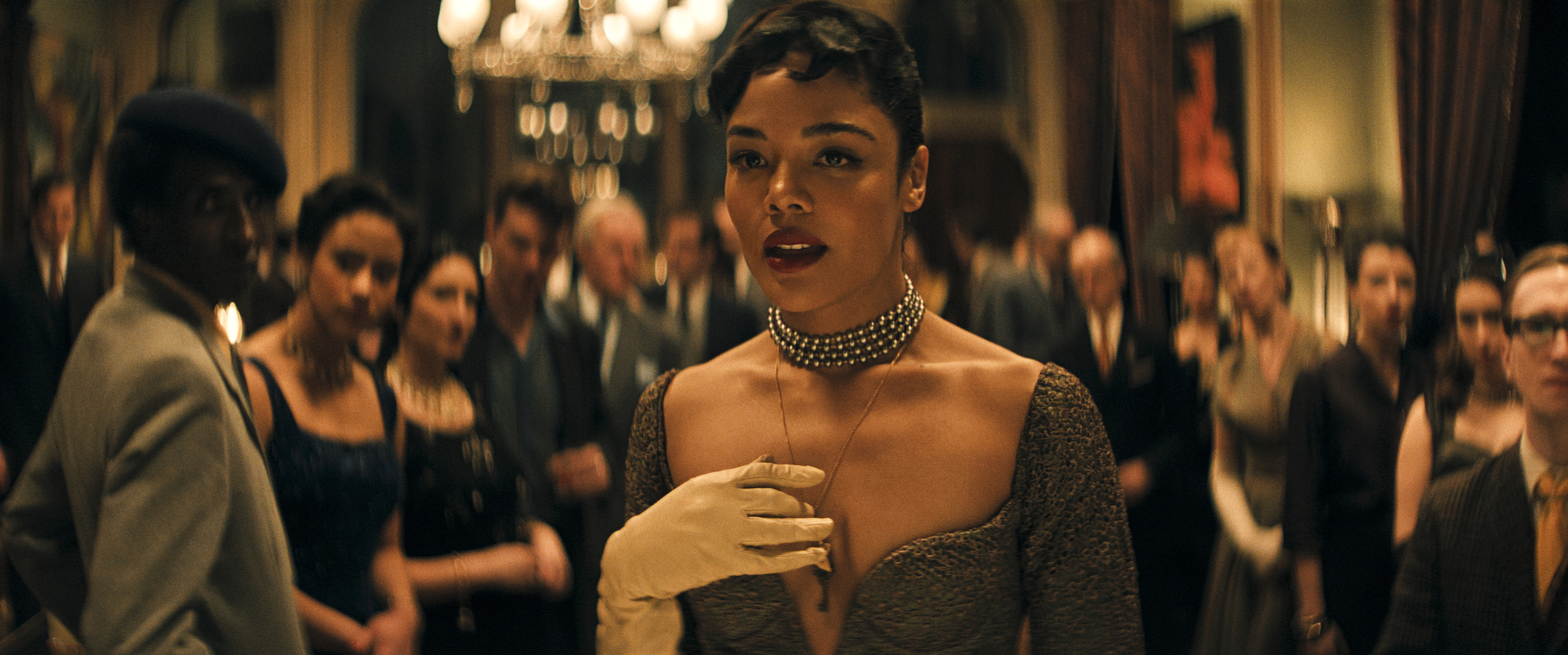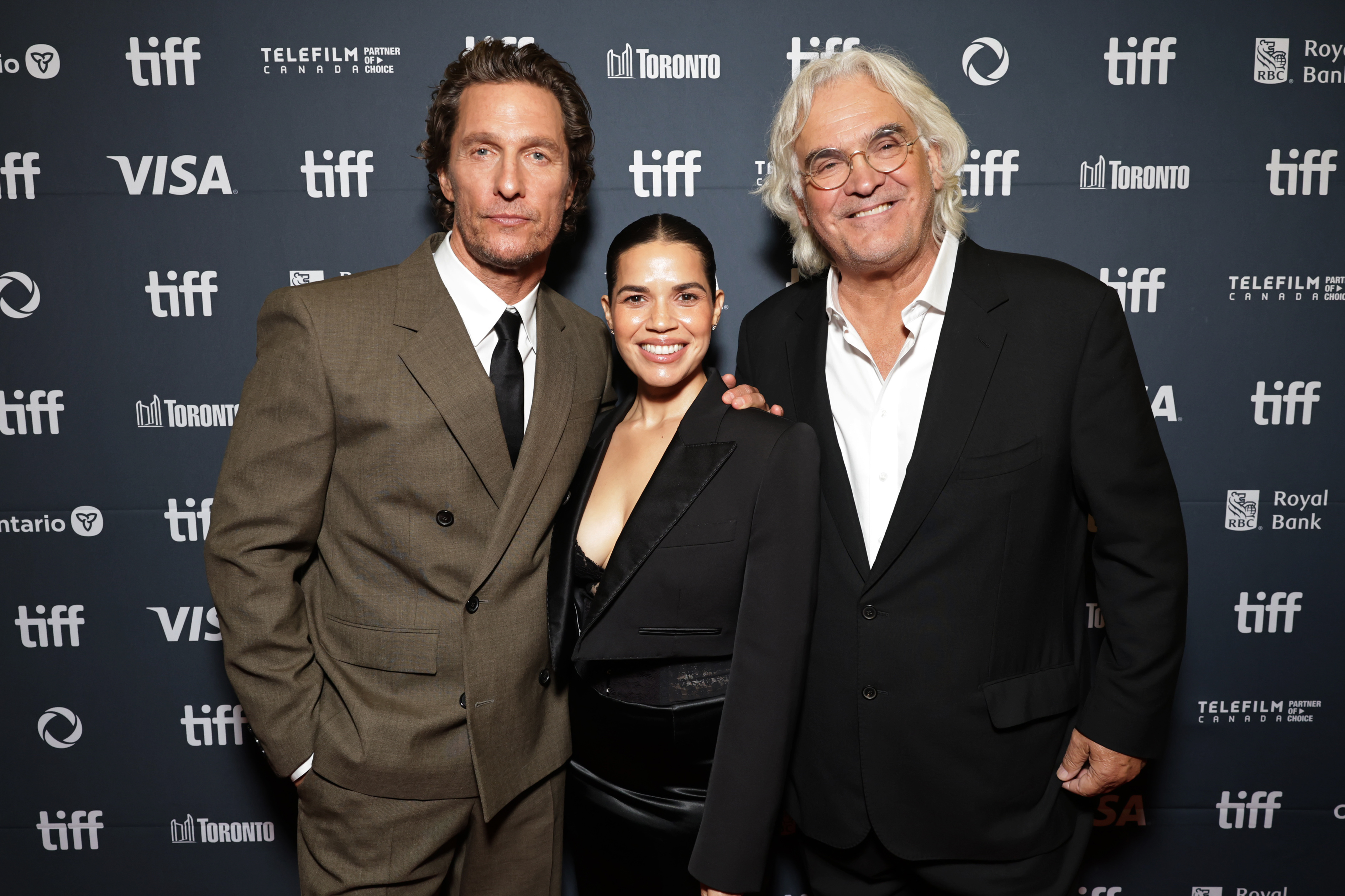It’s hard to get a film like “How to Shoot a Ghost,” the new short film directed by Charlie Kaufman and written by American poet Eva H.D., noticed at a festival like Venice. It’s a short, after all, and those are often sidelined at festivals despite robust programming that suggests a different story. It’s hard to get audiences in the room for them, for one.
But Kaufman, Eva H.D., and the producing team (including singer/songwriter Halsey, who backed it with her company Umade) behind his extraordinary new short did manage a red carpet appearance on September 1 ahead of their premiere — and ahead of Benny Safdie’s “The Smashing Machine” in the same theater. Outside the Sala Grande, Eva H.D. stood up for Palestine, brandishing a sign that said, “We Are All an Audience to Genocide,” amid a festival where the war on Gaza weighed heavily — and continues to after Alexander Payne’s jury awarded the Palestine-centered drama “The Voice of Hind Rajab” the runner-up prize before Jim Jarmusch’s Golden Lion winner “Father Mother Sister Brother” was announced.
The next day, IndieWire sat down with Kaufman and Eva H.D. in a cramped, airless room in the Palazzo del Casinò on the Lido to discuss “How to Shoot a Ghost.” It centers on a translator and a photographer, both of whom are dead, wandering Athens, Greece. They’re played by Oscar nominee Jessie Buckley and discovery Josef Akiki.
Life is better when filmmaker and writer Charlie Kaufman is in it. In 2020, he released both the 720-page tome of a novel “Antkind,” an industry satire about many things including a film critic, and the dream-logic, horror-adjacent Netflix feature “I’m Thinking of Ending Things,” loosely based on an Iain Reid horror novel.
That film contained a poem, “Bonedog,” read by Buckley and written by Eva H.D., who also wrote the lyrical stanzas for Kaufman’s 2023 cell-phone-shot short “Jackals and Fireflies.” They’re back together again for his latest film, the 27-minute “How to Shoot a Ghost,” which premiered in Venice out of competition. (Five of those minutes are end credits, only further emphasizing the weight and ambition of this uniquely hypnotizing short.)
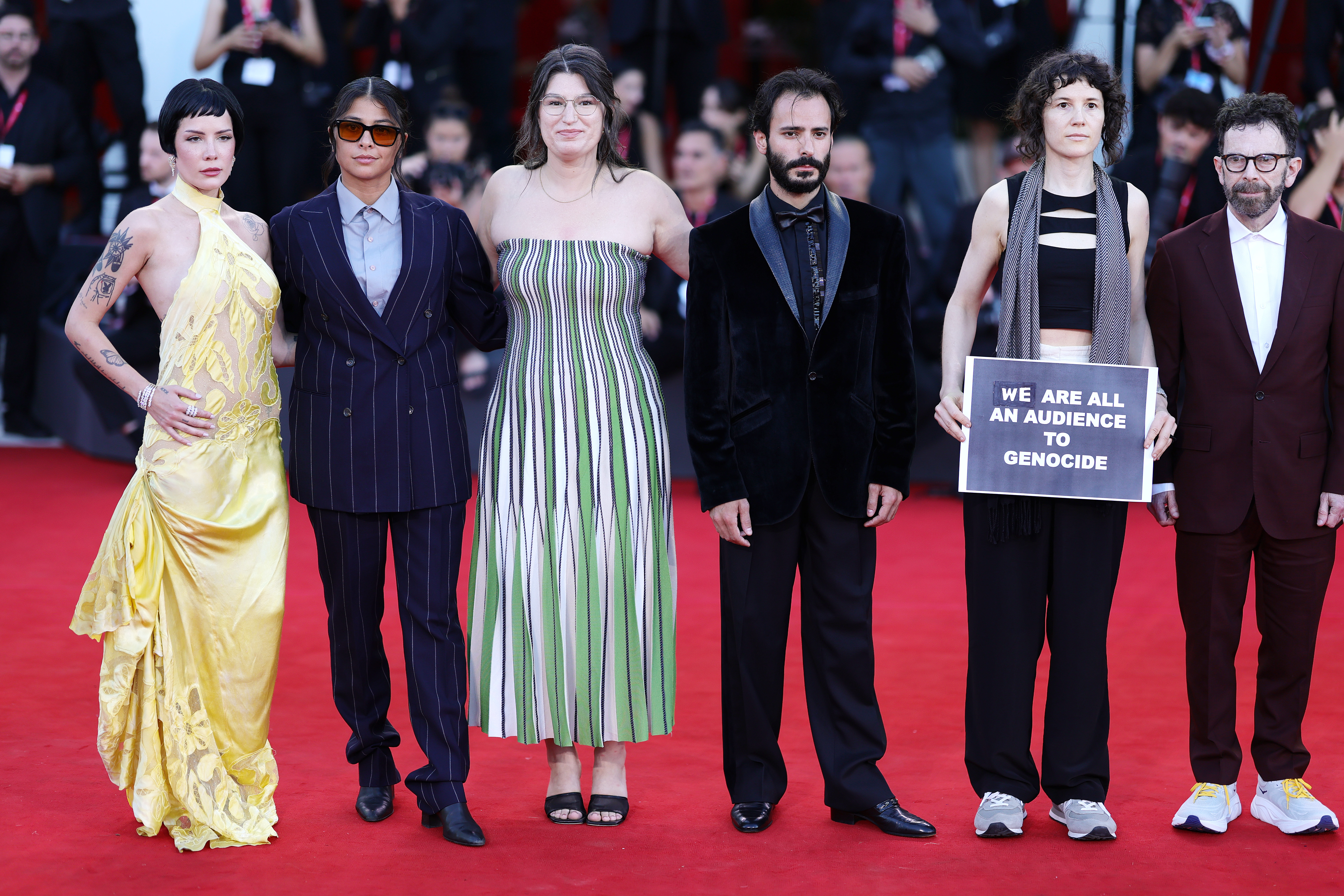
“How to Shoot a Ghost” also reteams the “Being John Malkovich” writer with “Ending Things” star Buckley, who plays a ghost roaming the streets of Athens and tumbling through elliptical remembrances and nights of partying and taxi-cab rides with the also-dead Akiki. In a blend of street photography, archival footage from Athens’ history, and original narrative material shot on location by Michał Dymek (“The Girl with the Needle,” “EO”), this evocative meditation on memory and loss recalls the hybrid fiction works of Chris Marker or the ruminative, temporal poetry of Alain Resnais’ “Hiroshima, Mon Amour,” written by author Marguerite Duras.
Post-Venice, “How to Shoot a Ghost” will play more festivals, to be announced, before later debuting on the free library streaming service Kanopy. In IndieWire’s conversation with Charlie Kaufman and Eva H.D., we touched on the ecosystem of short films, this one’s connections to his past work, and where “Synecdoche, New York” — Kaufman’s feature directing debut from 2008 — landed on the New York Times’ list of the 100 Best Films of the Century. (It didn’t, but it was an also-ran in a broader list of 500 chosen by readers.) Reviews were mixed at the time, but that deep-dive into the widening mental abyss of a hypochondriac playwright (played by Philip Seymour Hoffman) has only grown in esteem over time. Roger Ebert also picked it as the best movie of the aughts.
This interview has been edited for length.
IndieWire: Eva, it sounds like you weren’t familiar with Charlie as a filmmaker when you met years ago at an artists’ residency in New Hampshire, before “I’m Thinking of Ending Things.”
Eva H.D.: There was this area of this residency that did give a little bit of an autobiography about everybody, but I’d never seen it. New people were always coming in. Others seemed to know things, like they wrote this book or that book, but it’s because there was this little corner where people found things that were posted, but I hadn’t read any of it.
Charlie Kaufman: You had seen “Being John Malkovich.”
Eva H.D.: I did, but I didn’t know about the rest. He said he was writing a novel. I believed [that he was only a novelist]. I’m a sucker.
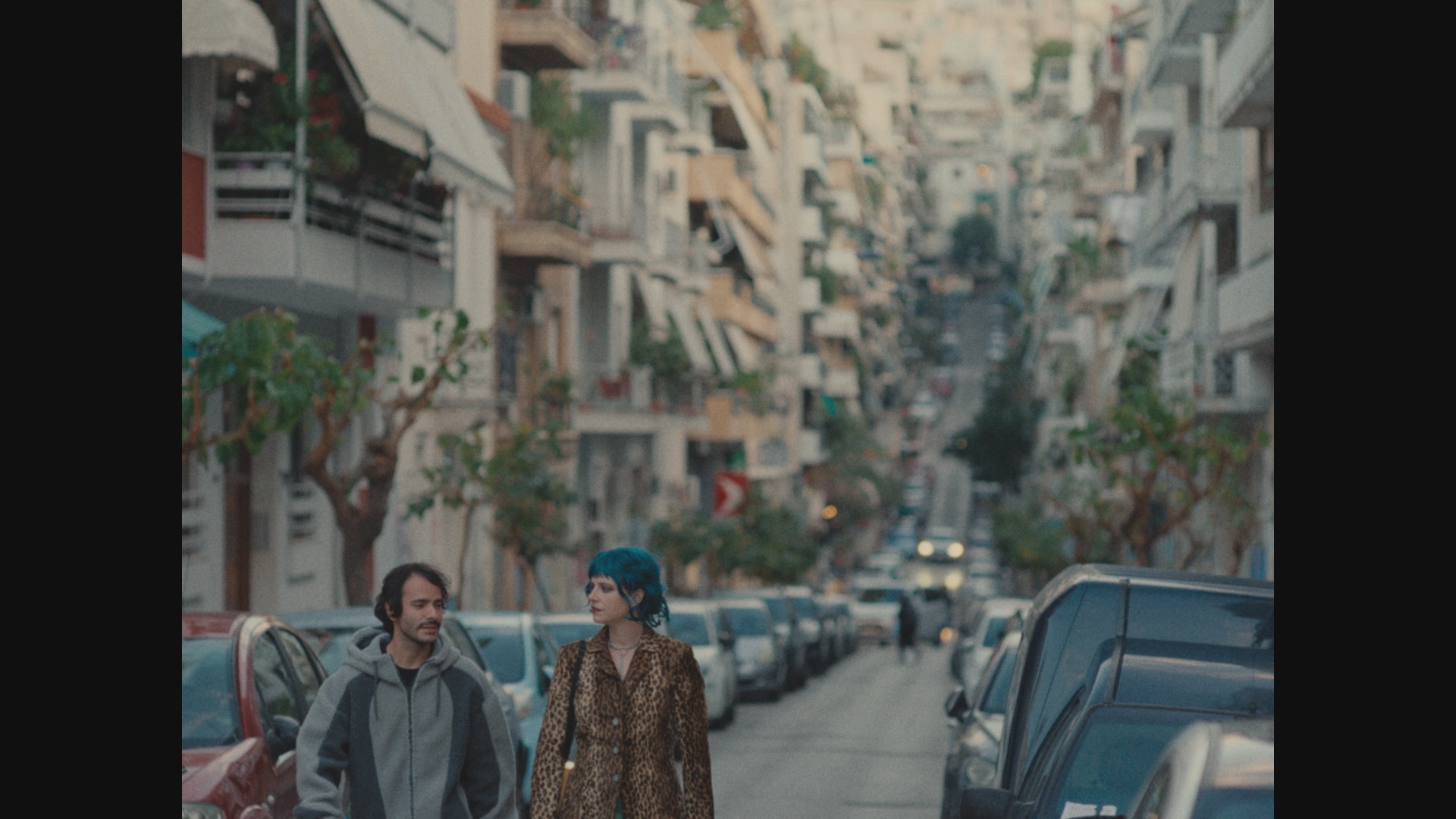
Charlie, “I’m Thinking of Ending Things” also featured a poem by Eva H.D., but you had already integrated poetry into your work with the Alexander Pope piece from which “Eternal Sunshine of the Spotless Mind” gets its title. And poetry is the DNA of “How to Shoot a Ghost.” How does that change your filmmaking process?
Eva H.D.: Did you do it because poetry is a moneymaker?
Kaufman: Yeah, that’s what I was hoping for. [Laughs] I don’t know. I really like Eva’s writing. When I was trying to construct that character in “I’m Thinking of Ending Things” and the idea that she was constantly being reimagined by the Jake [Jesse Plemons] character, I wanted one of those iterations to be a poet. I asked Eva if I could use one of her poems for that. For these movies, the two we did together, “Jackals” and this, it’s an opportunity when I’m doing a short film, which I hadn’t done before, to try and do something that’s not conventionally narrative. It’s a challenge for me. How do I do this, and what can I visually contribute to what’s written?
You shot this movie in six days in Athens, but it feels like a montage cutdown of a much bigger film. You are running all over the city. How did you condense the material?
Eva H.D.: At one point in editing, we cut almost everything out, just to see what we could put back in.
Kaufman: We had two different cinematographers. One was off getting stuff for us, and one was with us doing stuff with the actors, which is kind of what we did with “Jackals and Fireflies.” It was a way for us to get more footage. Even with two people, it was a lot of work to do that. It was very difficult traveling around.
Eva H.D.: We went all over the place, very intentionally to places where tourists don’t usually go, Americans don’t usually go. Charlie was very good at blending. Often, American film types impose themselves. We didn’t stop traffic; we were within it.
Kaufman: There was one shot where we’re in the middle of the street. It was a last-minute decision. We didn’t know how to get this shot, and we were in the middle of the road, and there was traffic everywhere. It was slightly dangerous. We couldn’t have stopped traffic if we wanted to. We weren’t that kind of production.
Eva H.D.: One of the things I sent him photos of when I was in Athens and he wasn’t at the beginning was this weird hot dog stand that’s halfway to nowhere. It’s very much in the middle of nowhere, and Charlie fell in love with it, and it’s in our film. It’s a cantina.
Charlie, had you stayed in touch with Jessie Buckley about doing another project after “I’m Thinking of Ending Things”?
Kaufman: You always want to work with Jessie. She’s an amazing person to work with. We certainly talked about things since then, and then this came up, and she was available.
How did you land on the character having blue hair? You’re reminded of Kate Winslet in “Eternal Sunshine.”
Eva H.D.: That was [Jessie]! She bought that for 10 quid.
Kaufman: She said, “What if she had a blue wig?” She said, “I found this thing online.” She bought it, and she styled it. I can’t make decisions based on things like that [such as the connection to “Eternal Sunshine”]. People have determined that I fixate on certain things because they’re accidentally things that happen. Here’s an example because it’s meaningless: That I cast Jesse [Plemons] and Jessie [Buckley in “I’m Thinking of Ending Things”] because their names are the same, and I was making some comment. No! It was [originally] Brie Larson and Domhnall Gleeson. They both couldn’t do it. I had no idea who Jessie Buckley was at the time. I called a friend of mine, a production designer, and said, “I need somebody for this role.” She was working with a director in England at the time. I looked at the “Beast” movie [she was in], and said, “OK, I want this person.” And I got her.
Eva H.D.: She always manages to channel something protean and anarchic.
Kaufman: And that was the audition for [“I’m Thinking of Ending Things”], the poem “Bonedog.” She recorded herself and sent it in the next day, and it was like, “Holy shit.”
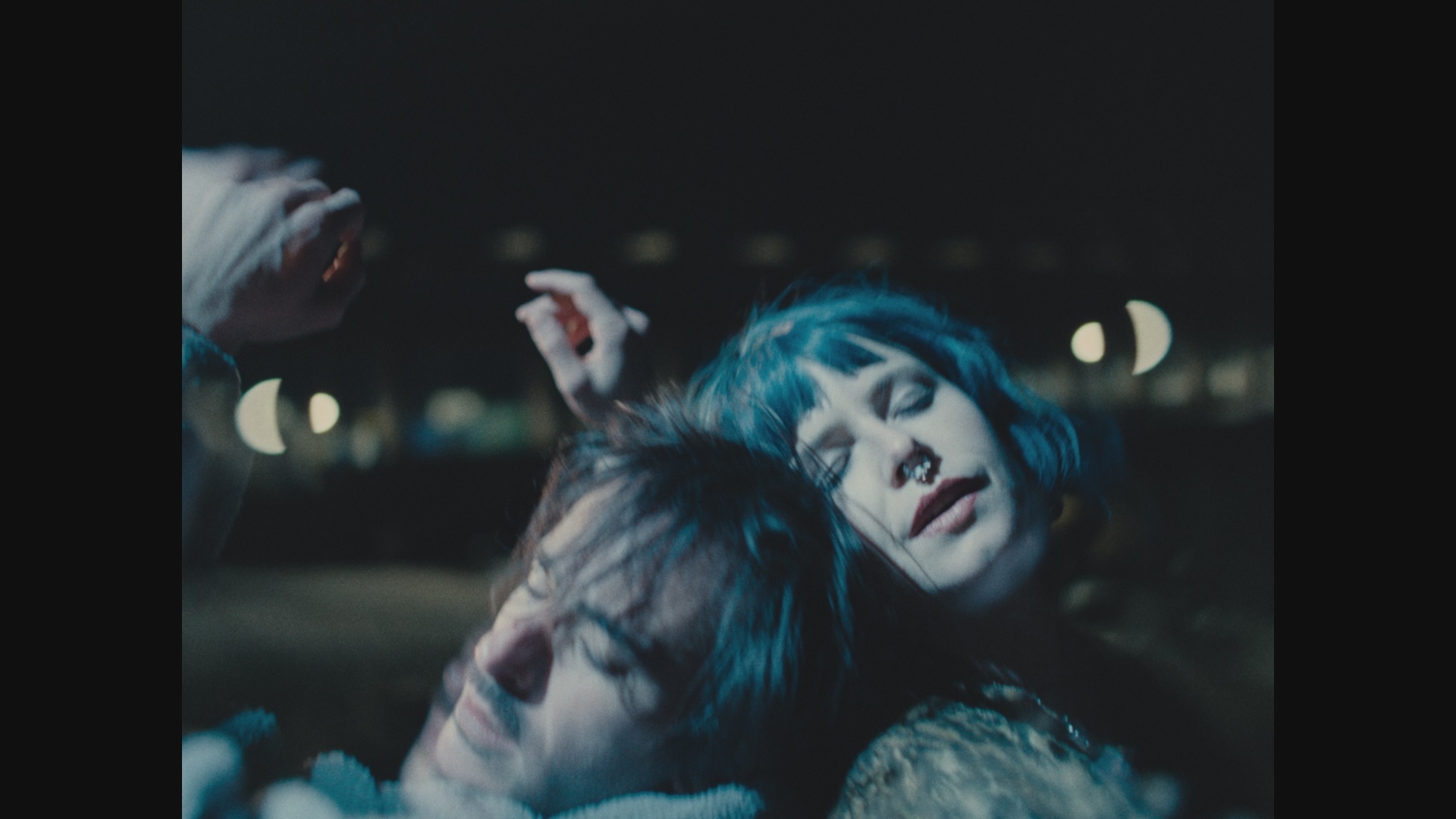
What about Josef Akiki? How did you cast him?
Eva H.D.: Both Charlie and I went to this thing in Greece called Oxbelly, which is not a residency [but a writers’ retreat]. At Oxbelly, Charlie and I did a talk of sorts on poetry and film, a rambling conversation we had. Afterward, this man, Ahmed Hussein, who’s a Lebanese filmmaker, chatted with me because he liked it. I got his number, and then when we were looking to cast this film, there were different people who were suggested but most of them were second-generation people with culturally Arabic backgrounds but they were German or American, or they were French. It just seemed wrong for this character to be played by someone like that. I wrote to Ahmed and was like, “Do you have any good Lebanese actors in mind?” He recommended three people, and we watched them, and loved Josef.
The use of archival footage helps tell the story of the changing nature of the city, where Greek locals have been pushed out by tourism and gentrification. Local people can’t afford to live there anymore.
Eva H.D.: Some of that archival footage is friends’ home videos. I just asked everybody and their mother, “Do you have anything?” We found a treasure trove of wonderful material.
Charlie, is there more anxiety or liberation in the short-film format as opposed to a feature? The life cycle of a short film is less traditional. Does that affect your outlook?
Kaufman: I couldn’t make this as a feature. I can’t even make the features that I write that are more narrative. It’s very difficult to get financing. It’s easier to get financing for [a short], but the downside is that no one is ever going to make any money on it. You have to piece together financing. I don’t need, like in “Jackals,” there were no movie stars. We happen to have Jessie in this, which is great for us, because she brings so much to it. There are all sorts of equations when you’re casting a feature to get financing. This person who is of this value, and it’s garbage. I don’t have to deal with that for a short. It’s a lot of work. It’s not like it’s less work. We’ve been working on this forever, and there’s no payoff.
Eva H.D.: There is!
Kaufman: There is, you’re right. But you can’t make a living. You lose money making a short. You’re still putting in the time…. We’re here at this festival, but we’re so under the radar here because no one cares about shorts. Then, sort of how awful and ostentatious everything is that surrounds us, I feel grateful that I don’t have to participate in that.
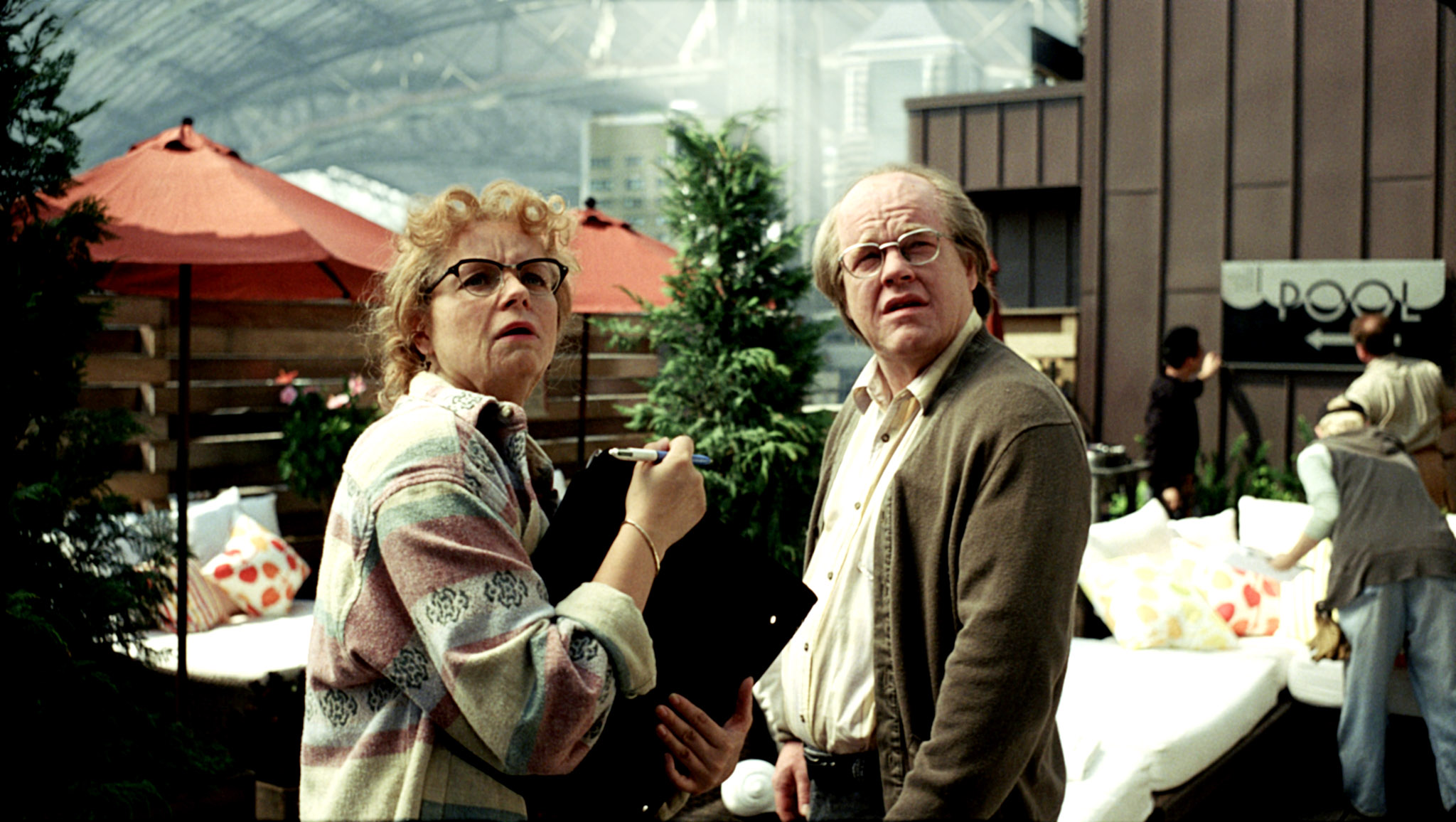
Charlie, you have a couple of other projects in the works. There’s an adaptation called “The Memory Police” from a Yoko Ogawa novel, and another called “Later the War” with Eddie Redmayne and Tessa Thompson, inspired by an Iddo Gefen story. There was a report earlier this year that “Later the War” was going, but then shut down. What’s the status of either of these?
Kaufman: We’re working on getting [“Later the War”] going. We had to rethink it. I don’t know what to say about it. We’re still working on getting it going, and I’m hopeful, and it’s very good!
What about “The Memory Police”? With “I’m Thinking of Ending Things,” you used Reid’s novel as an inspiration and a springboard for your own ideas, similar to Jonathan Glazer’s approach to Martin Amis’ “The Zone of Interest,” just to use a recent example. “Ending Things” and “Zone of Interest” also had the same cinematographer, Łukasz Żal.
Kaufman: I adapted that from a novel, and Reid Morano is directing it. I stuck to the book. There are things, as you know if you’ve read the book, that you need to figure out because they’re kind of abstract in the way it’s described. But [my screenplay] follows the book.
There was that New York Times list of the 100 best movies of the century earlier this year, though I was disappointed “Synecdoche, New York” didn’t make the cut.
Kaufman: It was on there, on the post list, but it was like #493. Not that I remember! [Laughs] They had the 100 best, and then they had also-rans, and out of that, they went out to 500, and I just slipped in.
That movie has only grown in esteem over time. How do you feel about the idea that it’s a film that needed time to be appreciated?
Kaufman: The Academy was doing a Philip Seymour Hoffman retrospective, and Spike [Jonze] presented the film. I wasn’t able to make it. It was divisive when it came out. There were people who loved it, and people who absolutely hated it — most especially [former New York Observer critic] Rex Reed. For Roger Ebert, it was the best movie of the decade.
Eva H.D.: He gave you a mold of his own thumb!
Kaufman: I’m happy I made it. I’m happy with the movie. It wasn’t helpful to my career as a director, as you can also chart, which doesn’t make me happy. I’m happy with the movie and the people I worked with. It’ll do what it will do in the world. It’s out of my hands.
Eva H.D.: Maybe it was helpful to your career as a human being.
Kaufman: I hope so.
“How to Shoot a Ghost” premiered at the 2025 Venice Film Festival. The film will eventually stream on free library streaming service Kanopy.

